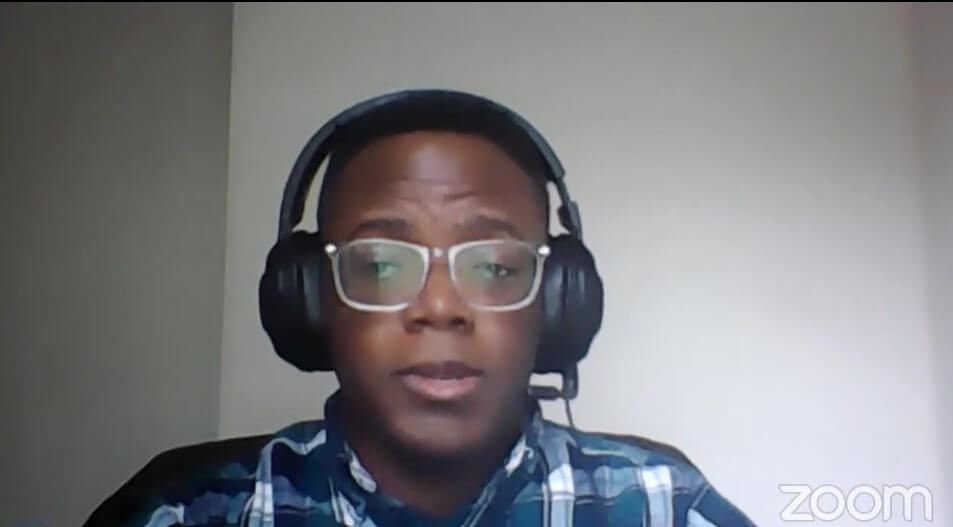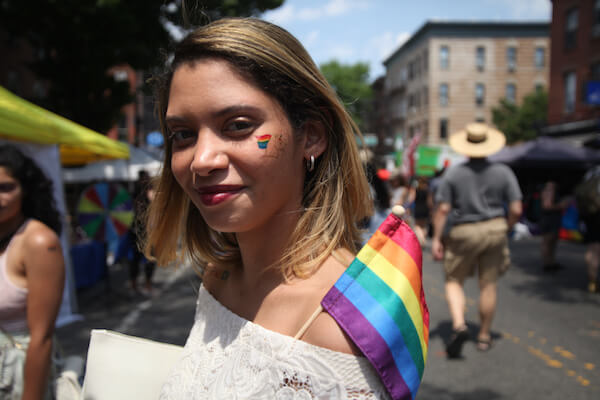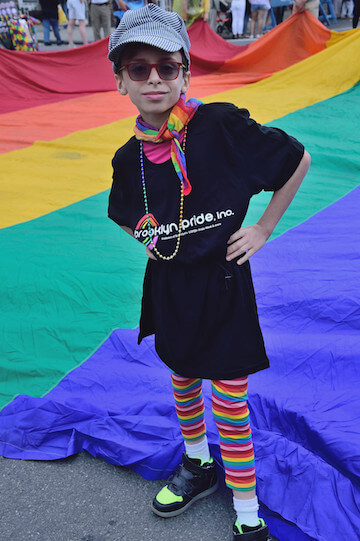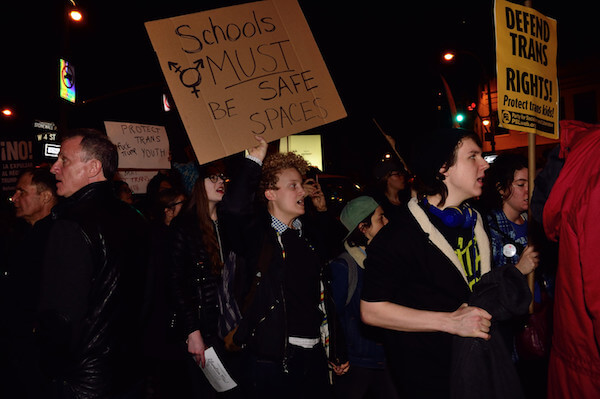Intersex advocates who joined a City Council hearing on October 28 made impassioned pleas in favor of a bill to establish an educational and outreach campaign directed at doctors and parents of intersex children in the face of widespread medical mistreatment.
But even as the de Blasio administration’s health department voiced positive words about the legislation, those officials at the hearing did not offer a direct answer when City Councilmember Helen Rosenthal, who chairs the Committee on Women and Gender Equity, asked whether the administration supports the bill.
The legislation would require the city health department to provide doctors and parents of intersex children with educational information and resources that would address medically-unnecessary interventions performed on babies who are intersex, or born with reproductive systems or anatomy unaligned with the standard definition of male and female.
Health officials point to “logistical,” “operational” issues facing legislation aimed at informing parents, doctors
The outreach effort would also inform individuals that the medical interventions can be “delayed until the infant is older and can voice thoughts about the procedure.”
The bill was proposed by out gay Councilmember Daniel Dromm of Queens in response to years of stories emerging from intersex individuals who say they have endured unnecessary surgeries that not only attempt to align them with a gender they may not identify with, but also negatively impact their health later in life. Dromm said during the hearing that he understood the danger facing the community because he grew up as a gay man at a time when being gay was considered a mental disorder.
“Sadly, much of the medical profession has been profiting off of violating the fundamental rights of intersex individuals, namely in the form of medically-unnecessary surgeries,” Dromm said during the hearing, which was held jointly between the Committee on Women and Gender Equity and the Committee on Health.
Dromm later left the hearing because he was feeling under the weather. Rosenthal, who chairs the Committee on Women and Gender Equity, pressed the administration on the bill, but was unsuccessful in yielding conclusive answers from the administration on the bill.
“Let me be a little bit more specific with the question to make sure we get this nailed down,” Rosenthal said. “Do you support Int. 1748 and do you condemn the practice of unnecessary medical procedures on intersex children and infants?”
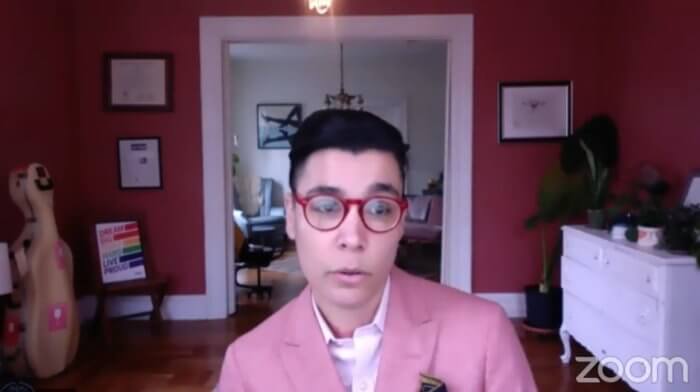
Chelsea Cipriano, executive director of intergovernmental affairs at the city health department, prefaced her answer by saying that the health department and the administration at large is “interested in developing additional expertise in… this space,” and she acknowledged that education would “go a long way” toward informing parents about medical interventions.
However, she then said, “We do obviously have some fiscal and operational issues right now with launching a new campaign,” even as she said “this is important work” and that she looks forward to “additional conversation.”
Jacqueline M. Ebanks, the executive director of the New York City Commission on Gender Equity, also chimed in, saying that “this is an area that we should take leadership,” but also did not offer a clear-cut answer on the administration’s position.
A spokesperson for the city health department did not respond to Gay City News’ questions asking where the administration stands on this legislation and what exactly was meant when Chipriano cited “fiscal and operational issues.”
The administration appeared to have very few answers on the issue. Rosenthal asked how many intersex individuals are born in the city every year and whether the administration collects that information, but officials said they had to get back to her.
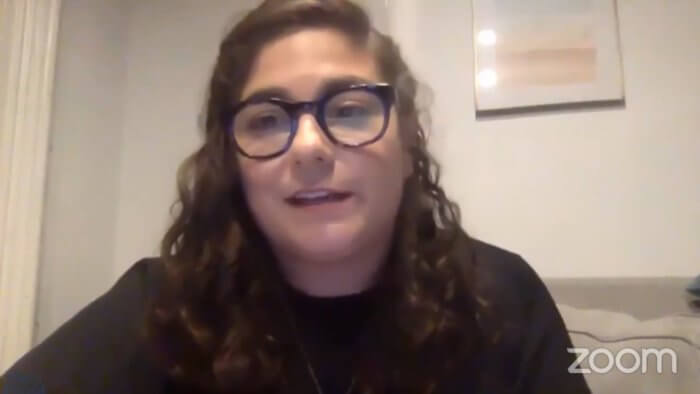
Lawmakers did get some answers on how doctors currently approach babies born with intersex traits. Dr. Marisa D. Nadas, who serves as the director of women’s operations for department of OGBYN at the city’s Health and Hospitals Corporation (H+H), said the team at H+H uses professional society guidelines to inform them when intersex babies are born.
“We really take a multi-disciplinary approach in creating management plans for these patients, Nadas said. “We involve endocrinology, we involve genetics, we involve radiology… There are social and behavioral specialists, as well, and often times religious support if that is needed in terms of the family’s assessment of the situation. We certainly use shared decision-making with the families in making the management plan…”
Advocates who spoke at the hearing offered testimony that was often raw, explaining the importance of such legislation in light of their own experiences.
Bria Brown-King, the program coordinator at InterACT, a non-profit organization advocating for children born with intersex traits, urged lawmakers to pass the bill and explained that harmful and unnecessary medical interventions are conducted merely to “conform our bodies to expectations.”
“We are not the problem, we are perfect as we are,” Brown-King said. “Doctors don’t want to talk about the cases like mine or so many others where surgery doesn’t go as planned… they don’t want to talk about these procedures that have been deemed a form of torture by the United Nations.”
Brown-King added, “Parents need to be educated and doctors need to be held accountable.”
Alesdair H. Ittelson, the legal director at interACT, reminded everyone that intersex youth are still subjected to surgical interventions without their consent, which Ittelson said can lead to issues such as chronic pain, sexual dysfunction, and psychological trauma.
“This is absolutely [female genital mutilation] but it’s not being prosecuted because it’s performed by white straight cisgender doctors at fancy medical clinics at Cornell.” said Ittelson, who then said medical professionals have already been called out for performing clitoral reductions and using vibrators on intersex children as young as six years old.
Ittelson urged swift passage of the legislation and called for an advisory board consisting of intersex inividuals who would oversee the development and implementation of the educational campaign.
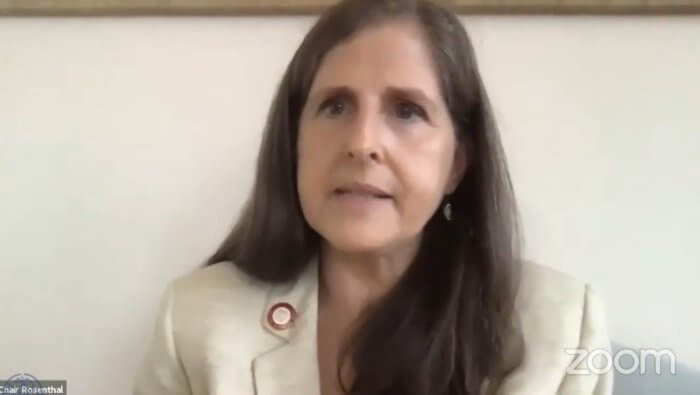
Rosenthal, who is a co-sponsor on the legislation, assured Ittelson that the City Council will do its best to “make sure it’s the sharpest bill possible.”
The legislation is also co-sponsored by Carlina Rivera, Ben Kallos, and Margaret Chin of Manhattan; Diana Ayala of the Bronx and Manhattan; out gay Carlos Menchaca and his colleague Farah Louis of Brooklyn; and out gay Jimmy Van Bramer and his colleagues Costa Constantinides and Donovan Richards of Queens.
Regardless of the legislation’s fate, a more far-reaching piece of legislation is pending at the state level. Out gay State Senator Brad Hoylman of Manhattan unveiled a bill last year that requires informed consent from an intersex minor before doctors are allowed to move forward with non-medically necessary treatment or intervention.
To sign up for the Gay City News email newsletter, visit gaycitynews.com/newsletter.

